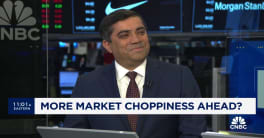Economists largely agree that the Beige Book document to be released Wednesday by the Federal Reserve won't reveal anything new. It will likely say that economic conditions are generally soft across the country, with a few pockets of exceptional weakness and moderate growth, economists say.
The Beige Book is a summary of economic news over roughly the past six weeks in the 12 Federal Reserve Bank districts. The Federal Open Market Committee and analysts look to the compilation of comments by regional Fed banks to get a non-numerical picture of economic conditions across the country.
The last Beige Book was released on April 16 and covered the U.S. economy for the six weeks ending on April 7. It contained commentary stating that consumer spending was "softening" across much of the nation, while residential construction was "generally anemic" and that declines were reported in both retail and auto sales.
Charmaine Buskas, senior economics strategist at TD Securities, said the report should offer anecdotal confirmation of what the hard data has already shown. She expects to see broad-based deterioration of economic conditions, with little chance of any improvement in housing or credit conditions.
She said markets are less likely to give the report much attention, but they will look at the one number that looks at how many Districts are in overall decline.
Nine of 12 districts were slowing in the last report, with only the Boston, Cleveland and Richmond districts describing activity as mixed or steady.
Brian Bethune, chief U.S. financial economist at Global Insight, said the key is whether that figure has moved to 10 or eight. "That's the first thing to take away," he said.
In addition, he'll be looking at the overall change in tone relative to the last Beige Book report, and in more depth he'll be analyzing the language used to describe each District.
Bethune said the report will likely confirm much of what is already known, for instance that motor vehicles sales are soft (affecting Chicago and possibly Cleveland), that housing "is pretty much universally weak," and that there hasn't been much change in wages.
Buskas said housing has seen broad-based weakness across most of the U.S., with "some pockets of exceptional weakness" in the Southeast and the West, where delinquencies are rising.
As for the employment market, Buskas said "we've seen labour market conditions deteriorate, but not deteriorate massively so," adding that the report will indicate that losses are "reasonably broad-based" and no longer confined to construction and finance or consumer-oriented.
Some other issues remain open, however. Bethune said he'll be looking to see if commercial construction has been holding up following upward revisions to first quarter data. Also, the last Beige Book reported that manufacturers were attempting to pass price increases down the pipeline, so he'll be comparing the language of that report to the new anecdotes.
Rishi Sondhi, economist at RBC Capital Markets, said analyzing that pass-through will be of "considerable interest," predicting that input costs have likely risen due to escalating oil and food prices.
Fed officials have taken a more hawkish tone on inflation since the last FOMC meeting, with Chairman Ben Bernanke recently stating the risk "that the economy has entered a substantial downturn appears to have diminished," but that inflation is "significantly higher" than the preferred rate.
Overall, Bethune said the report is not a market mover and likely won't get too much attention. He said major changes in the tone of the Beige Book have the possibility of creating effect, but this time around they aren't expected.
"At this point, the Fed has already telecommunicated that it's on hold," he added, noting that even hawkish comments will only be confirmation of what's already been said.
He also called the report "the softest document the Fed publishes," adding that it can be hard to translate the tone of the report into hard data, but nonetheless the comments on prices may get some extra attention in anticipation of Friday's CPI report.
By Patrick McGee and edited by Stephen Huebl







